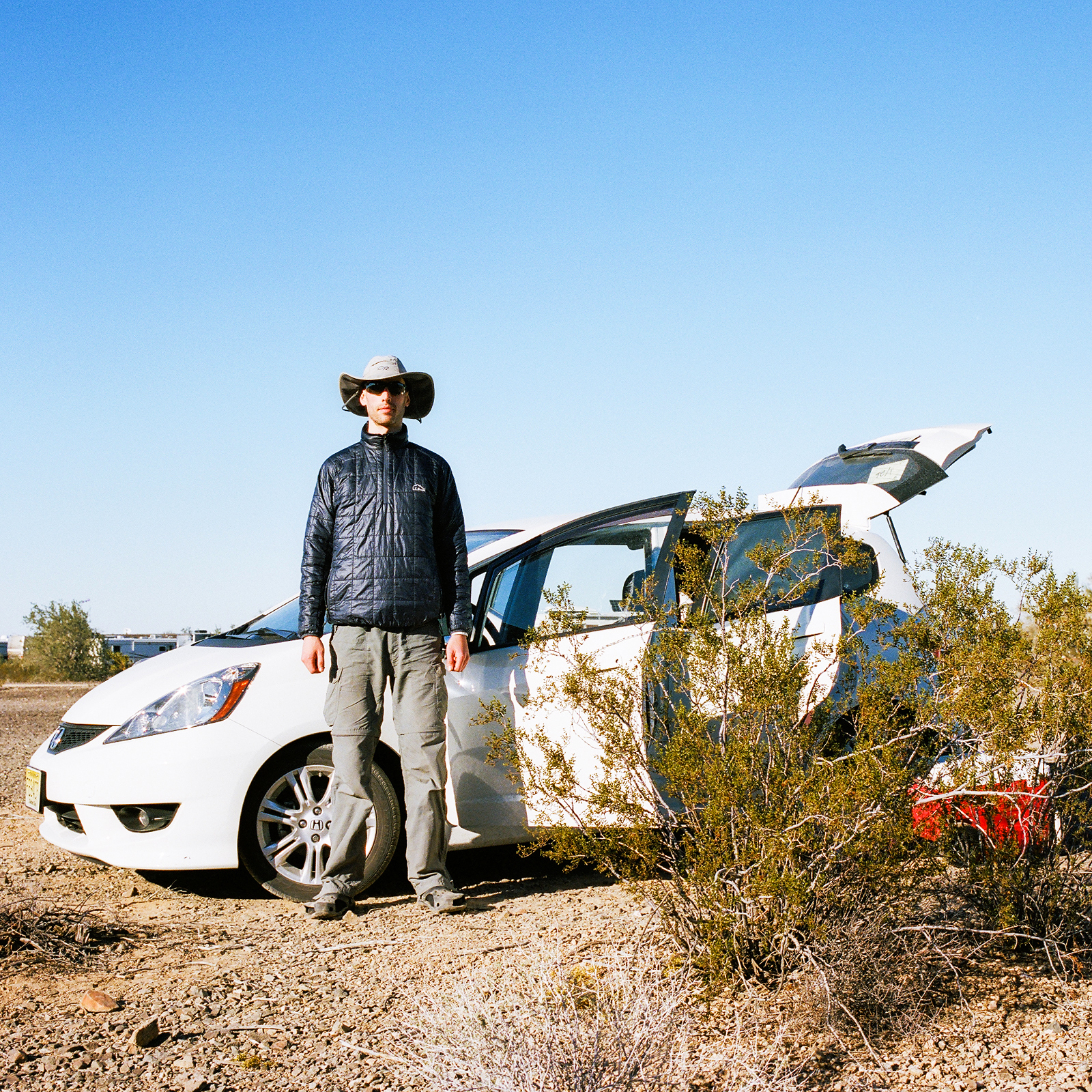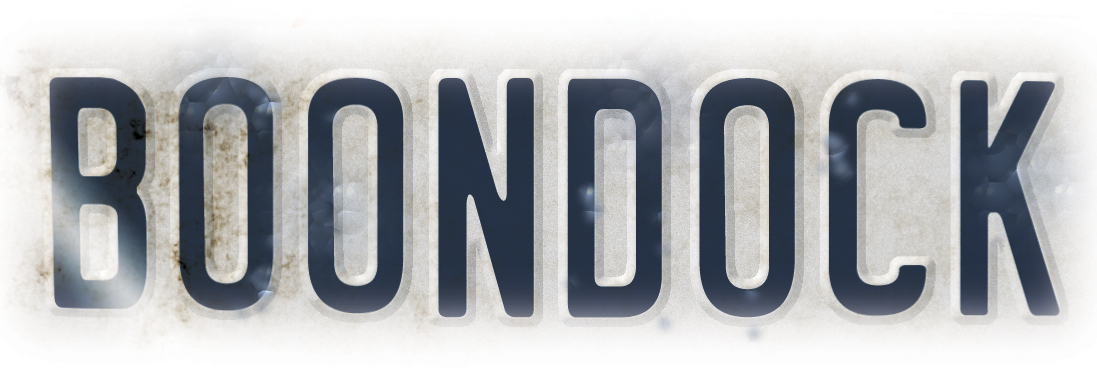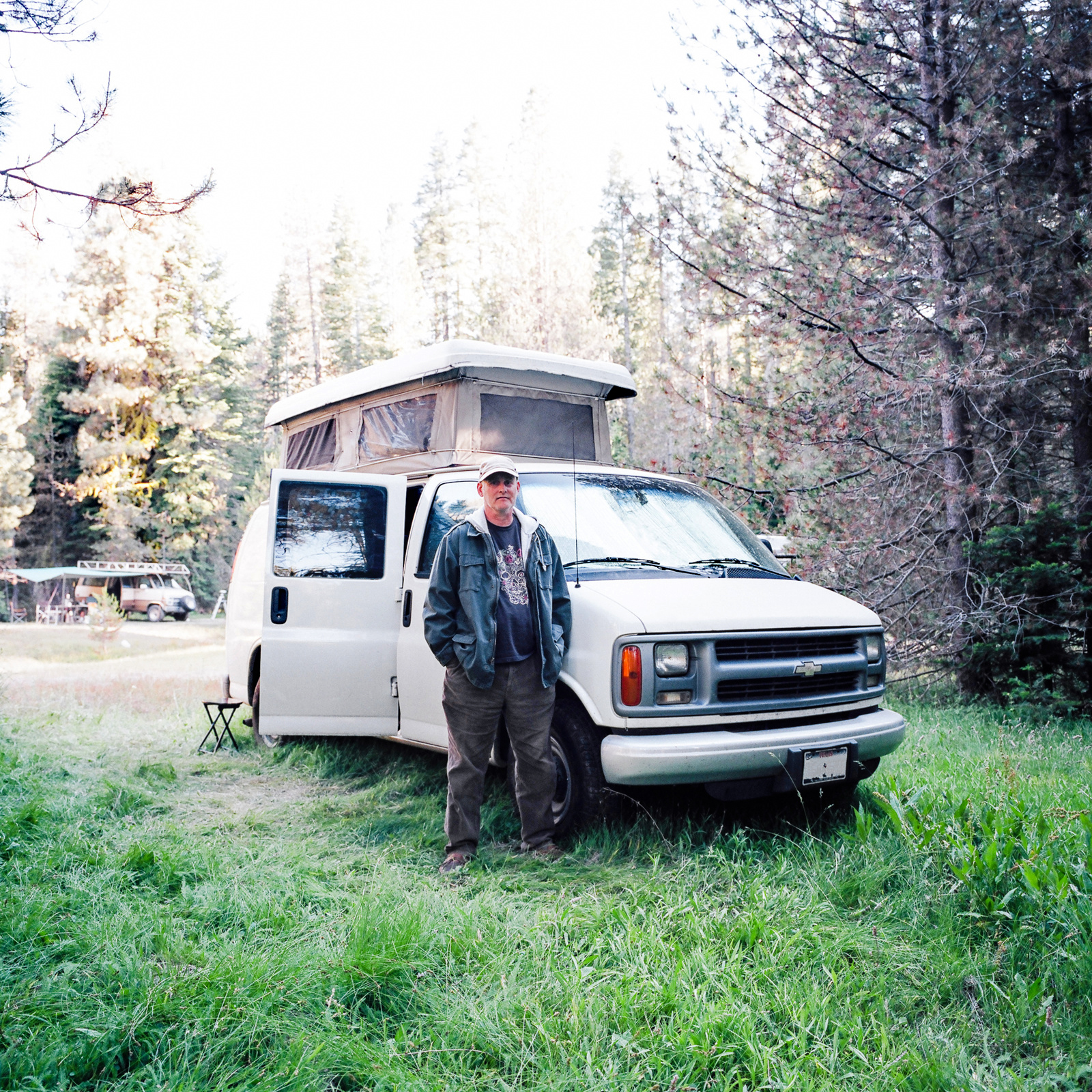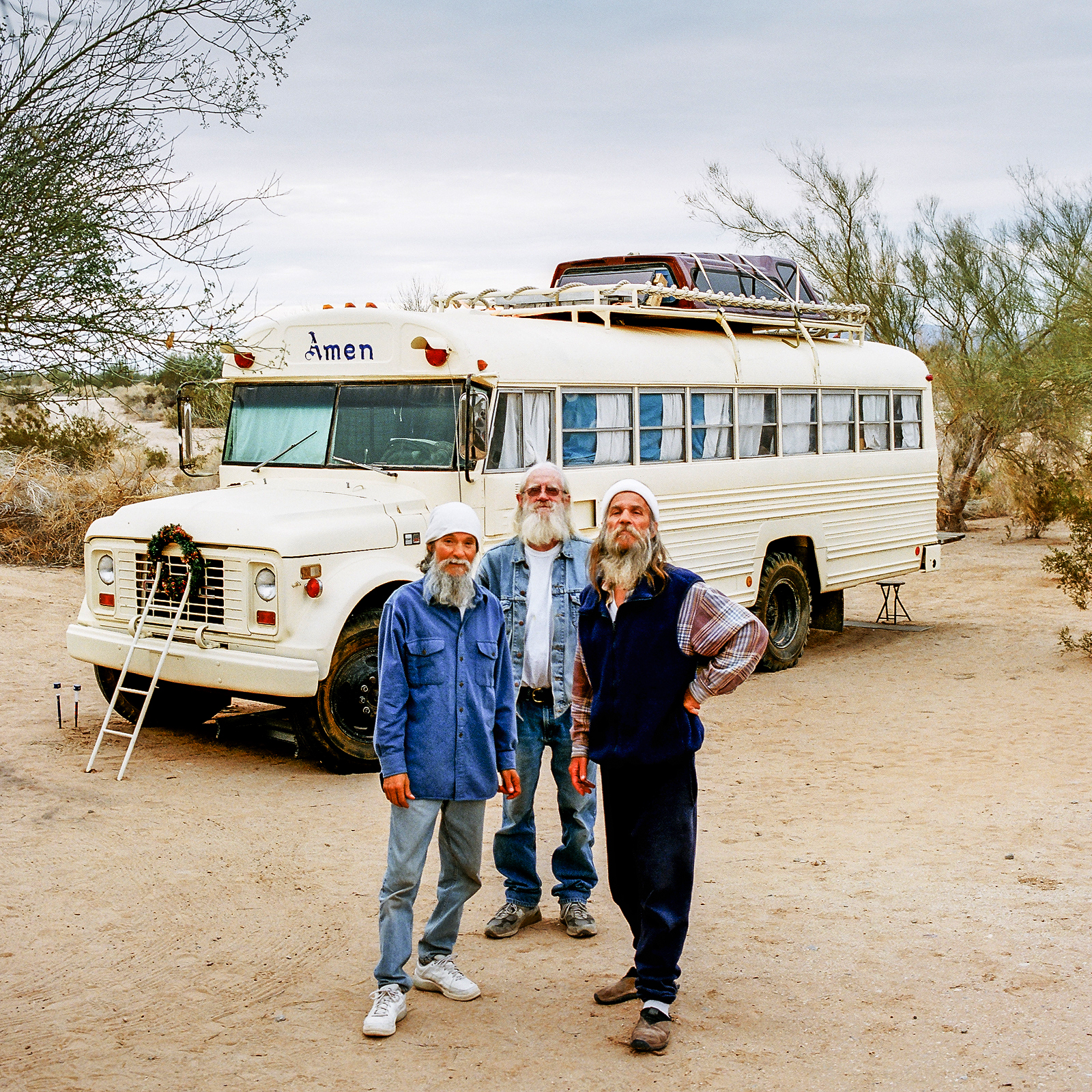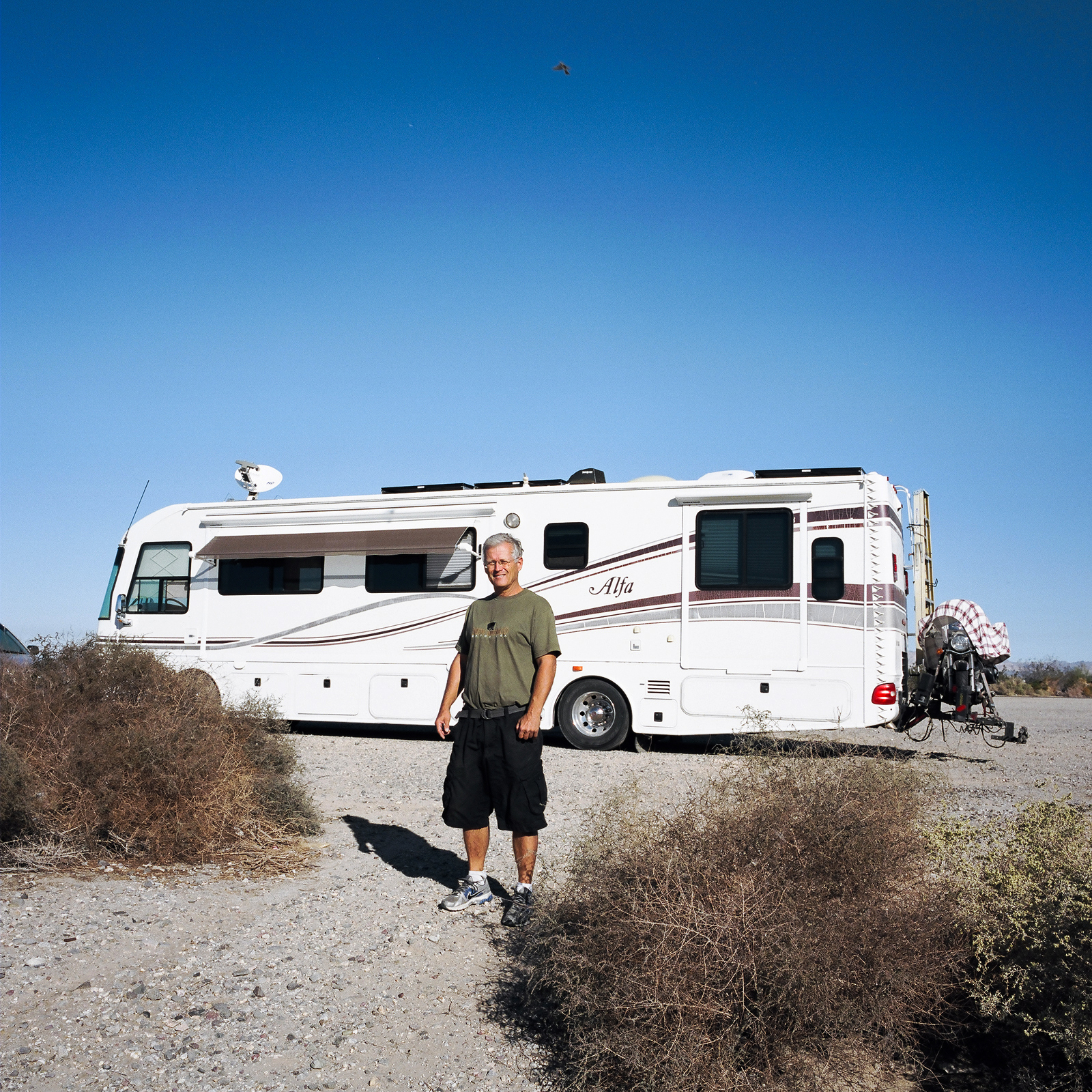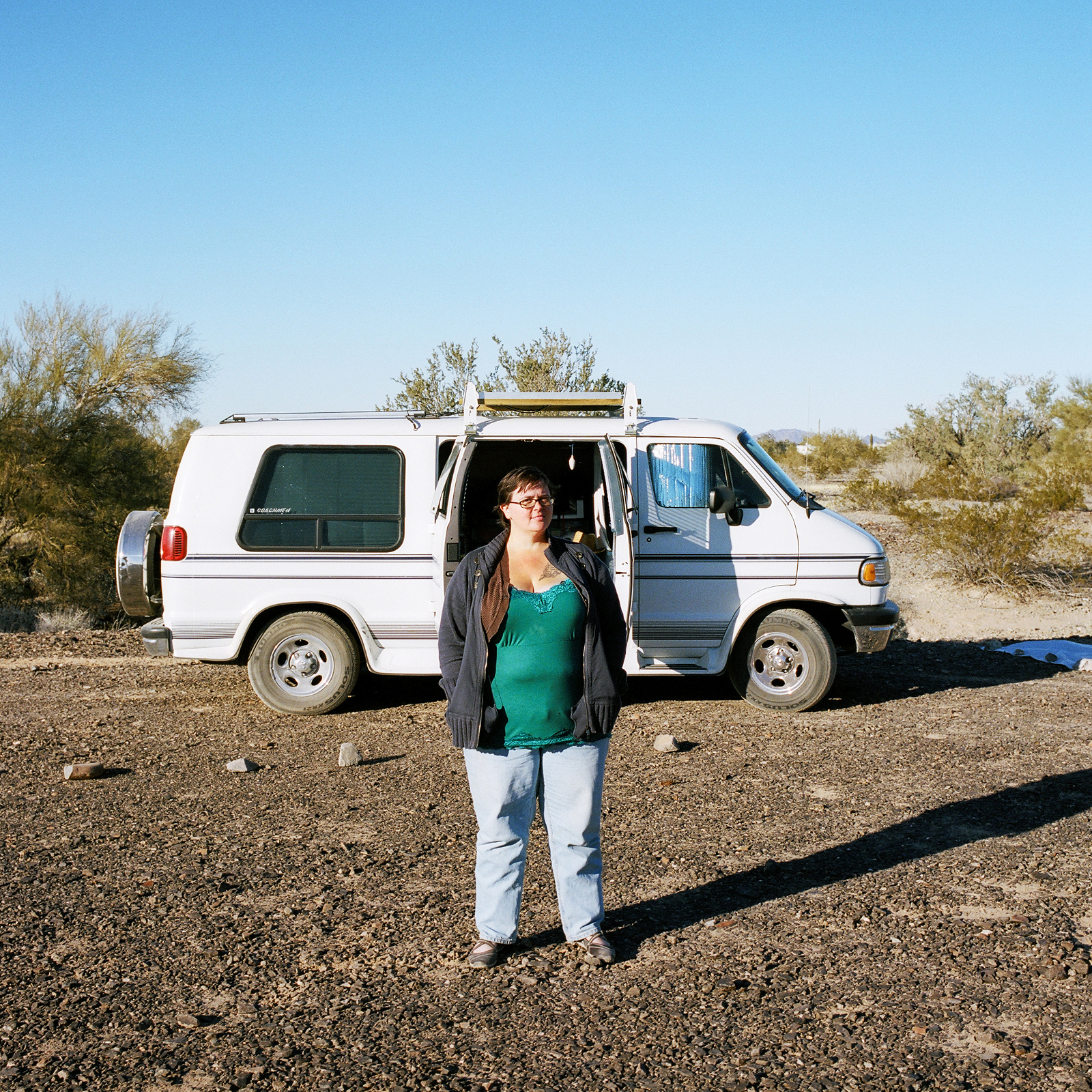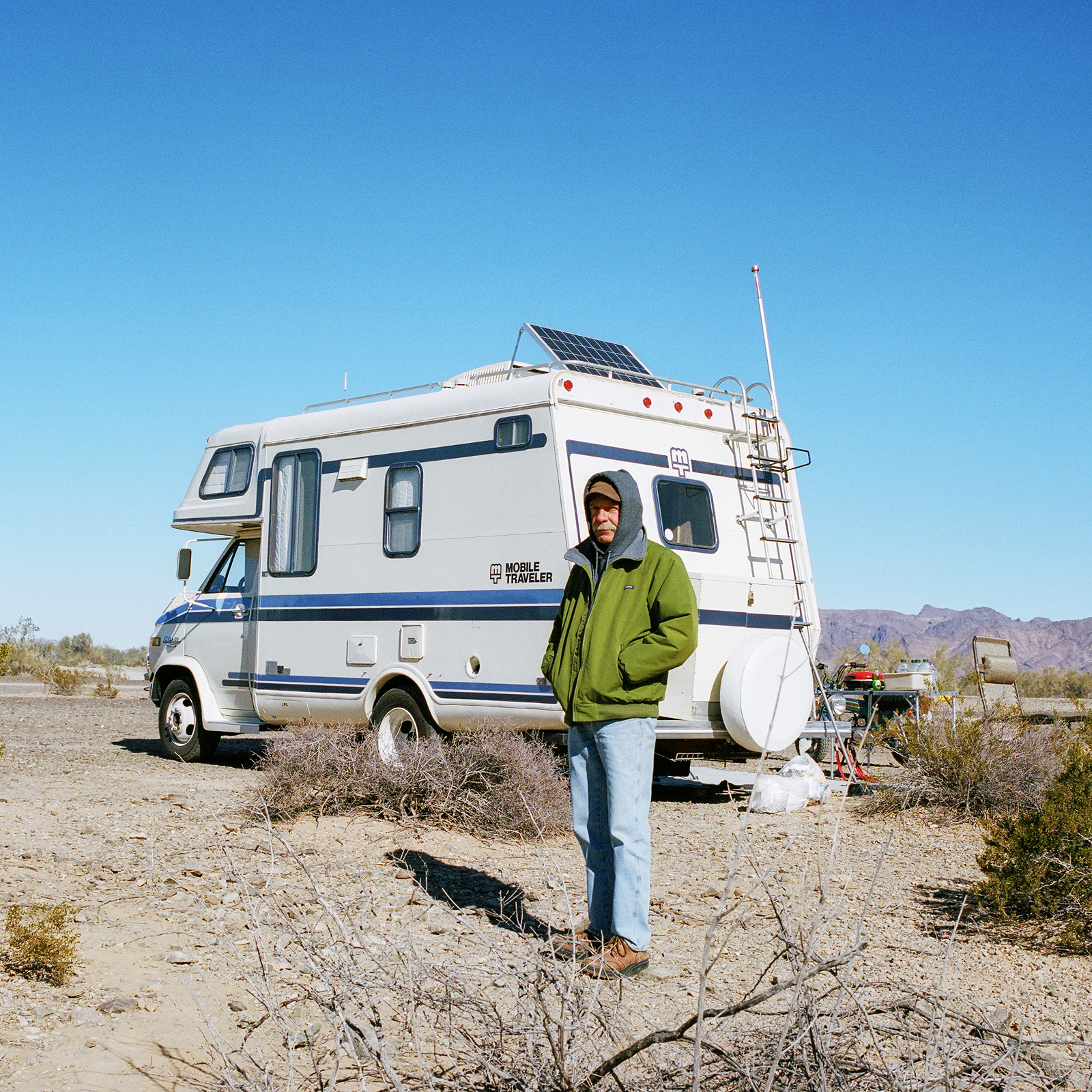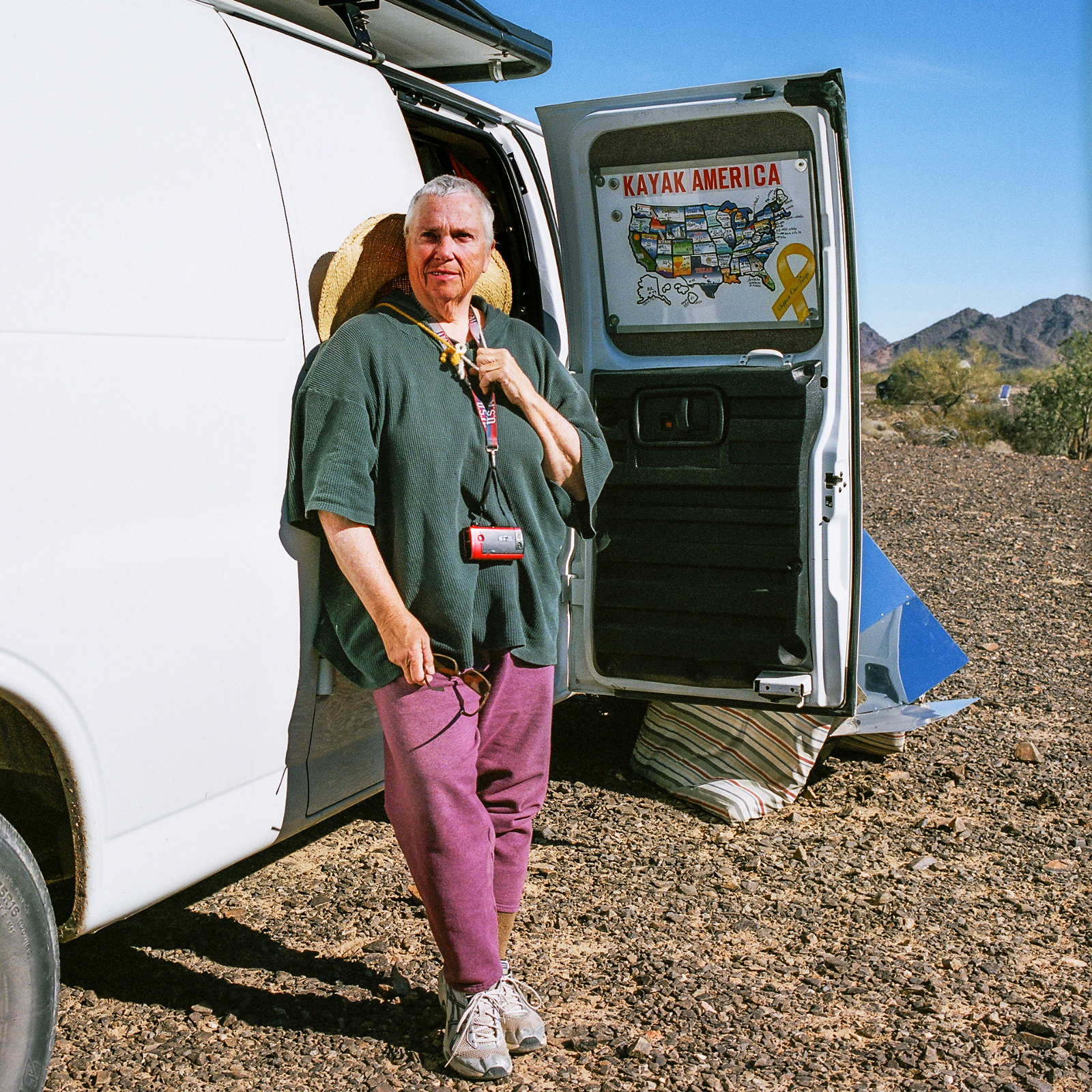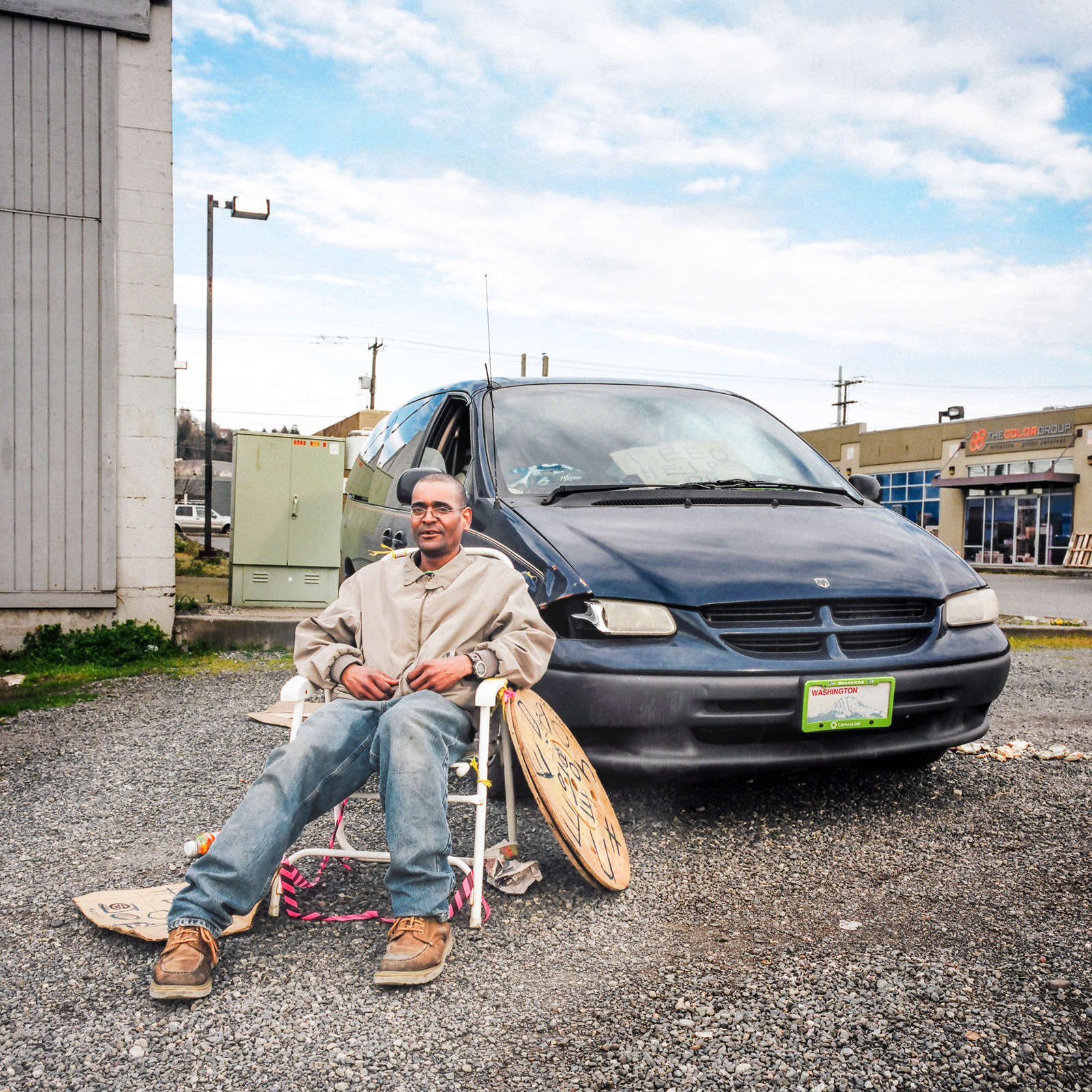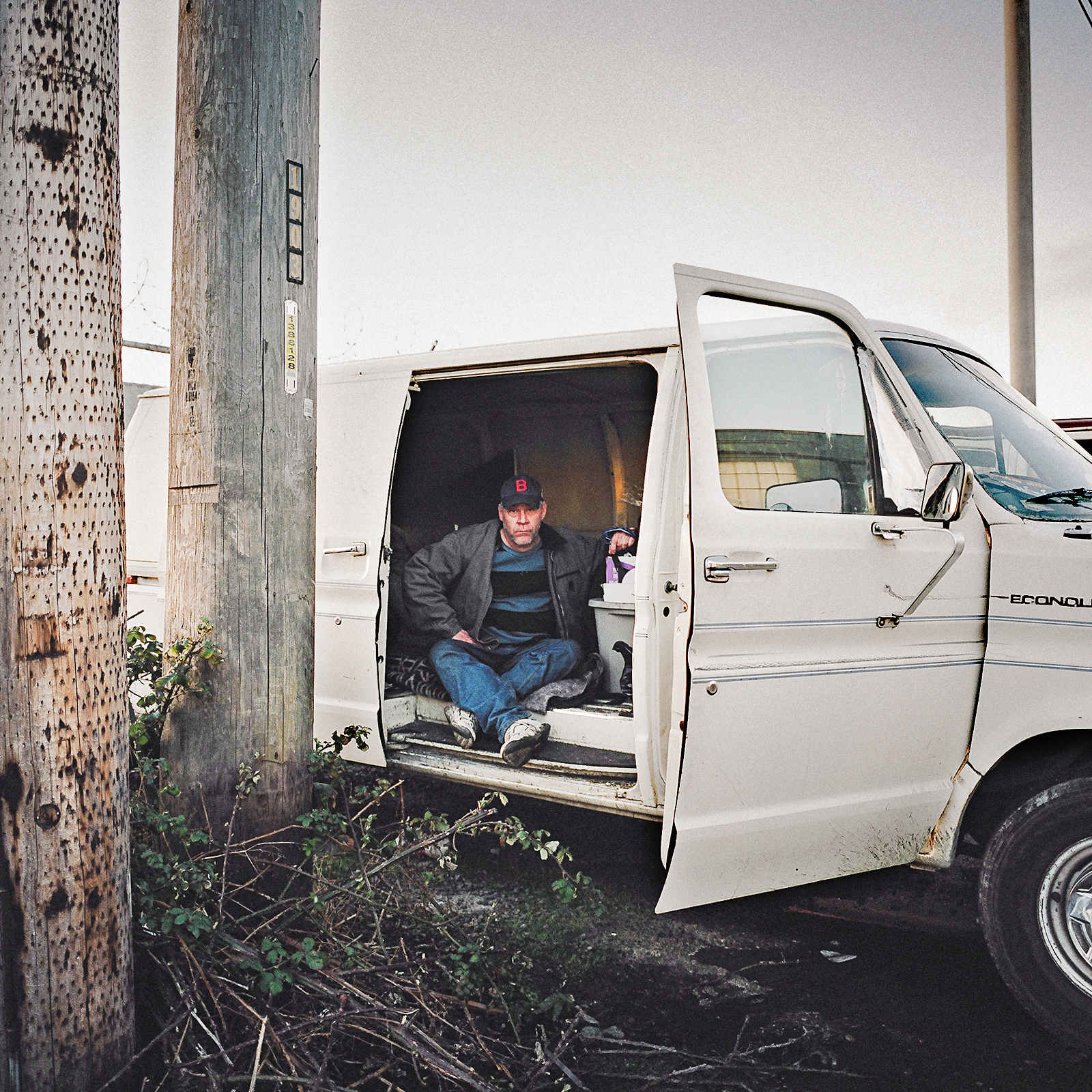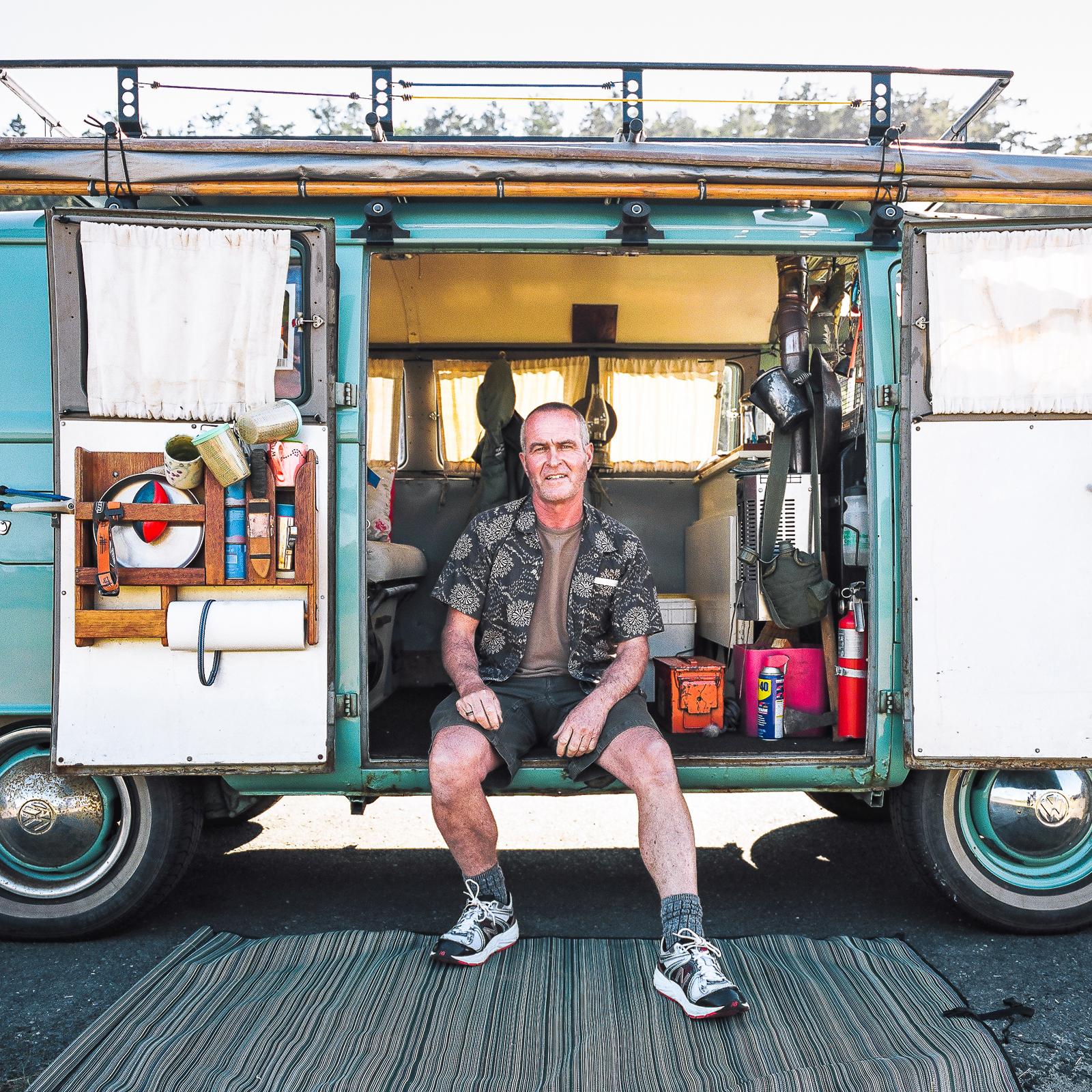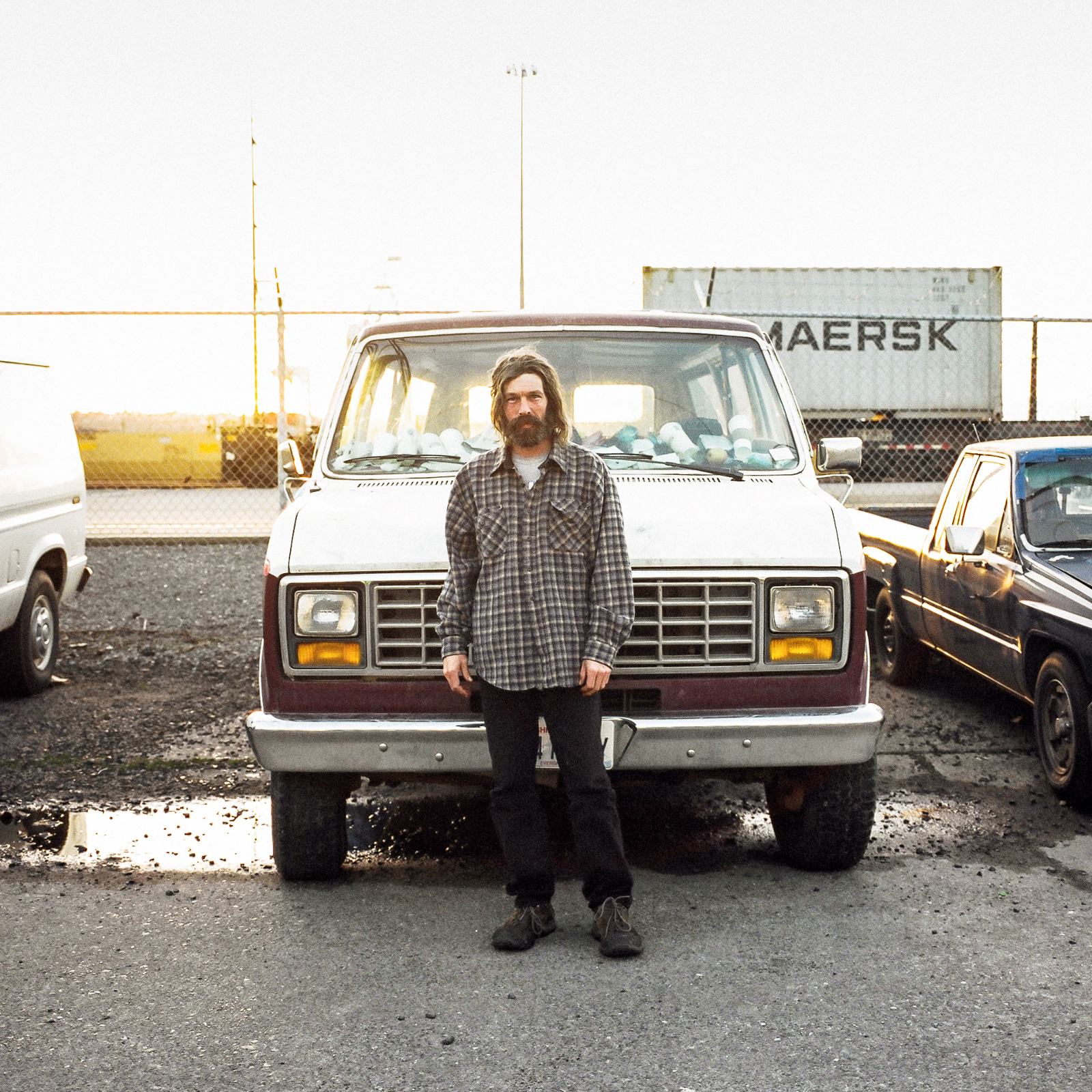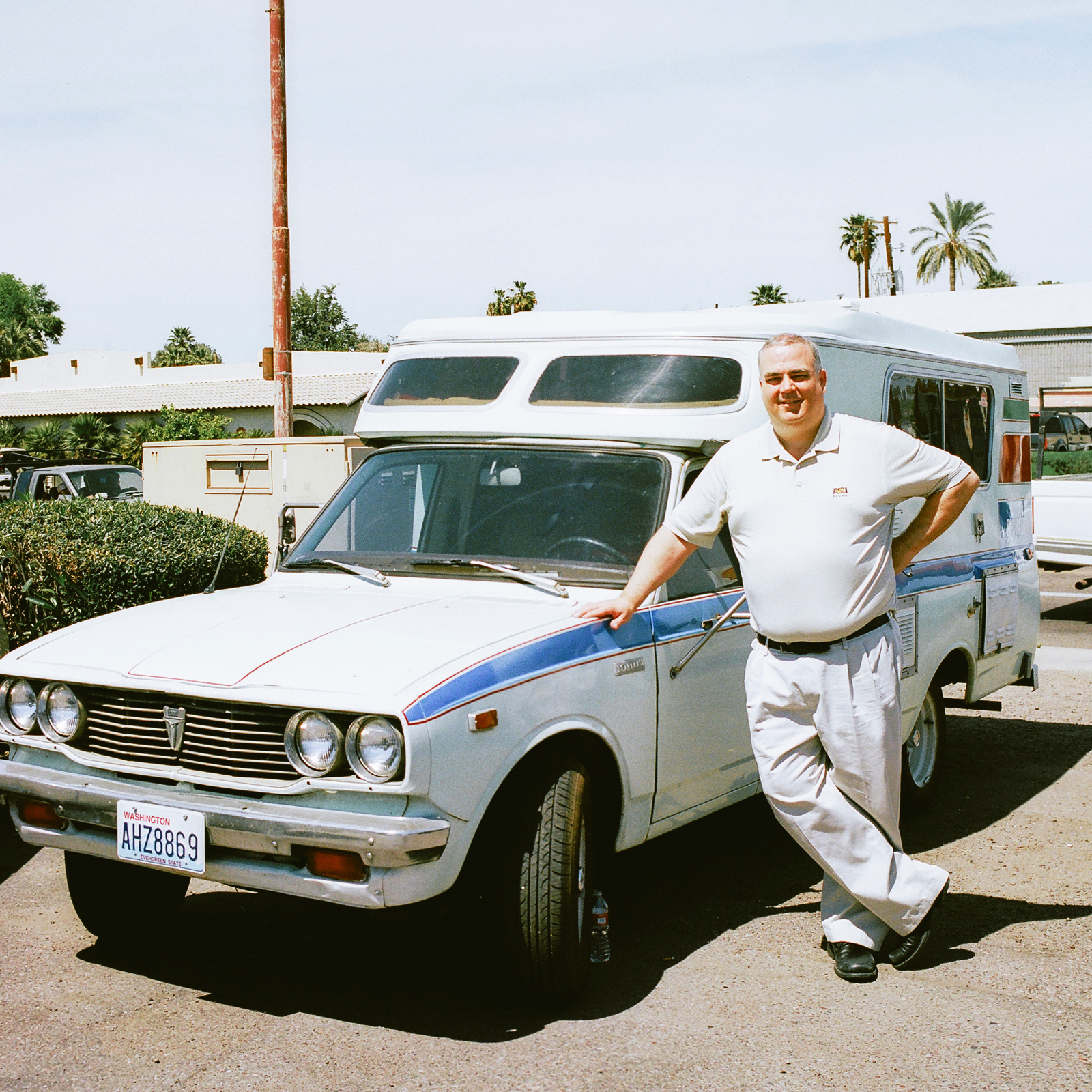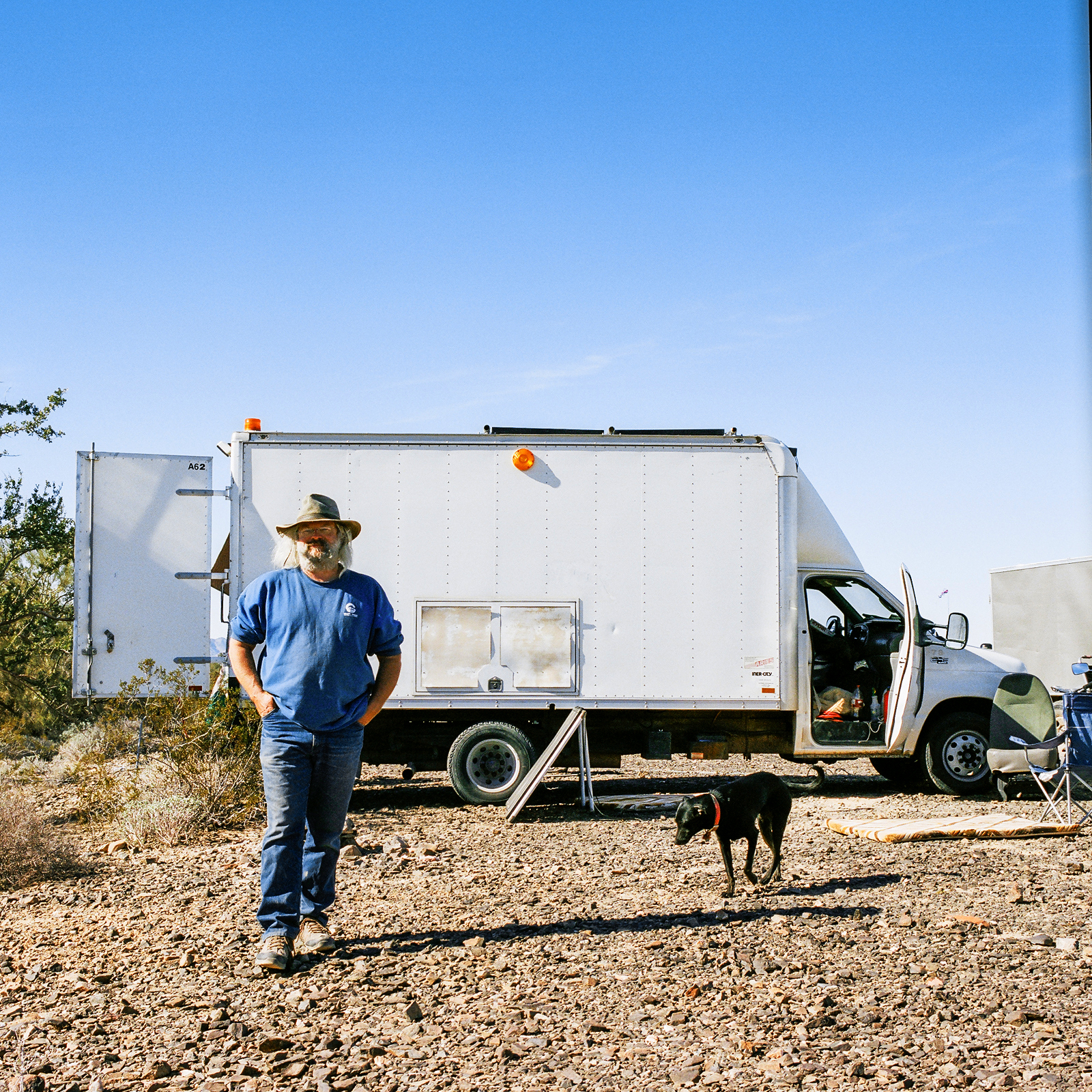For many Americans, a vehicle is more than just a mode of transportation. These are the people I went in search of. d Against the backdrop of the recent housing crisis and enduring economic fallout, I traveled the western United States seeking individuals who spend much of their lives in vans, trucks, RVs, and compact cars, as well as the communities that blossom from this lifestyle. d Through the photographs and interviews I’ve collected over the past two years—a handful of which are presented here—I have attempted to reveal a subculture whose existence isn’t carved into the landscape of America, but is rather a mirage upon it. I’m not trying to define an archetype; my hope is to exhibit the diversity of this disparate community and present a compelling vision of existence outside the current narratives of domesticity that dominate American life. d For some of the people I met, the vehicle as home represents a willing rejection of American dogma—challenging the meaning of “home,” detaching it from the idea of ownership. For others, it’s a necessity brought on by hardship and an inability to attain stability. For many, the vehicle is a home away from home—a temporary reprieve from confinement to a fixed geographic location. While technically off-the-grid, many of the people I spoke with and photographed were far from disconnected. For those fortunate enough to have access, the Internet plays a meaningful role in the fostering of community and the construction of a virtual safety net of information and support. d “I think the more exposure this type of living is given, the better it will be for American society,” I was told by a man named Scott Mooiy who spends nights under the Arizona skies in his compact car. “People should be given the opportunity to see other unconventional options that are different than paying their mortgage or landlord. This is a feasible lifestyle, and it can be done in a thousand ways. . . . Whatever your comfort level is and whatever your finances look like, this lifestyle is doable.” d Surveying both urban and remote locations, from Washington state down to Arizona, I’ve attempted to show how many ways it is being done, providing a juxtaposition of different vehicles, owners, and environments while exploring ways in which survival dictates a fluidity of location, interconnectivity, and, for some, the very concept of home.
Gordon Hempton, Fort Warden
The journey is not just about getting there. The trip starts now. Slow down and enjoy what’s going on immediately around you. I didn’t want to start my journey to success in life with the suspicions of others, so I ripped out the key and put in a push-button starter. Just push that button and off you go.
David, Seattle
I’ve been out of work as a union laborer for seven months. I’ve lived in this van for about one year and two months, and I like it. Actually, I love living in my van. My biggest problem is not being able to spend time with my kids. That’s my biggest thing. If I didn’t have four kids and didn’t have that worry, psh, I’d live in my van forever.
I was married for 14 years, and I was always stressed out. When we got divorced, she got everything, we claimed bankruptcy, and all of a sudden all these stresses that I had were gone. It was a totally liberating thing. With the exception of my kids, I don’t have any other responsibilities.
The cops know I live in my van. I don’t trash the area, I don’t throw crap everywhere, and I don’t cause problems. I would recommend this kind of living to everybody.
Gizmo Joe, Slab City, Calif.
What I don’t spend on rent I can put in on my ideas. If you take any machine, you can break it down into discrete components. A lot of times I’ll need a component for an idea that I’m working on and it’s part of something else, so I’ll take it apart. That’s why I got so many leftovers laying around, because you can’t make omelets without having a few eggshells.
Jude, Juan, and Nick, Slab City, Calif.
People have gone so far away from what’s true that there’s no way for them to get back on their own. We were really blessed to have a teacher, a guide, to demonstrate how to live—to help us through so many changes and transformations over time. He was there for us for 40 years. That’s how I got to where I am now. If you want to see guaranteed results, just turn around and start in the other direction. Reprogram yourself. Because heaven is real. It’s here right now inside of you. That’s where we all end up: back at the beginning after this whole journey is over and everyone’s learned all their lessons.
Bob, Shaver Lake, Calif.
I was forced into van-dwelling. I got divorced and could no longer live on what I was making. I saw a box van on the side of the road one day and decided I could live in it. I took out my last $1,500 from the bank and slept in it the first night. I ended up living in it for the next six years.
I insulated it and used heaters. There are a lot of problems with living in a van. Where do you go to the bathroom? Shower? Cook? Get mail, etc.? But as these problems arise, you find ways to solve them. I found solutions and it became comfortable, and I fell in love with it. I can’t say exactly what I love about it. I was still working and supporting my two kids and giving half the money to my ex. But I loved not having to mow a lawn or shovel snow. I loved not having those tedious responsibilities. And I loved not having to pay rent. I’m not under any stress. In my normal life I was constantly stressed out. There is a peace and calmness out here. I’m completely off the grid. I produce my own power. I use extremely little water. I produce so much solar power I can’t use it all. The greenness of this life is a happy coincidence.
The way I see it, I live in a tiny, tiny house and have an enormously beautiful backyard. In 2005 I started a website called CheapRVLiving to promote this type of living as a lifestyle choice and to show how to do it comfortably and happily.
Eventually we started having gatherings, and unusually strong friendships and bonds were formed. The relationships seem deeper and more intense out here. I think part of it is that they’re based on freedom. Because of this, they’re very elastic.
When I think about the future, like most Americans, I think about the economy and where things are going. Everything seems so shaky right now. It definitely colors the conversation when discussing the future. I have no desire to do anything different. I want to live this way the rest of my life. If it comes to a point where I can’t do this anymore, it’s my full plan to make good provision for my dog, try to leave my kids as much money as I can, and go into the desert as far off as I can and kill myself. That’s honestly my plan for the future.
James and Kyndal, Quartzsite, Ariz.
James: The whole thrust behind us doing this is so I would have time to work on the Internet and build a business so that eventually we can upgrade our digs, but hopefully still travel. I don’t know if a home is in our future. I had a home foreclosed in Denver a few years ago, and I look back and I think, What was going through my mind when I agreed to commit to an $1,800 a month mortgage for 30 years? What was I thinking? In that three-year period, I paid about $50,000 and all of the ancillaries, and all I have to show for it is a foreclosed home.
Kyndal: In 2007 we took a poll, and James said he was going to start working on the Internet full-time. So, I went and got a second job to try to make ends meet for us. We made things work. In 2010 I came home and I said, “I can’t do it anymore.” I can’t do it one more day. We moved a couple of times and ended up in Georgia. We were there for a year and a half. James went to work, and little by little, I could see him die a slow death every single day.
James: It had become circular, because it seemed like we were making just enough to pay for what being there was costing us. We weren’t gaining any ground, and it didn’t seem like we were going to. One day we were just like, Let’s go. We’re not doing anything for ourselves here.
Kyndal: To me it looks like we’re a couple of crazy people in a van. But if we were in a motor home staying in camp sites. it would seem normal. Retired people do it all the time. And if we were in a sailboat, it would be considered romantic. I don’t feel destitute. I feel more hopeful than ever before. If anything, I felt destitute when I was giving the best I had to a job.
James: People are living this “American dream” and feel like they have to do it because that’s the rule. I feel there is more to life than that. I don’t work that way. People think I’m crazy, but I think they’re crazy.
Charlene Beaty, Quartzsite, Ariz.
Life takes a lot of funny turns. I don’t think I ever really experienced the empty-nest syndrome like some people do, but the kind of lives my kids were living after they left home didn’t really leave much room for me. I didn’t mind so much they were gone, but I just figured I was going to be some part of that. So between losing my husband around this same time, losing my kids, and finding out my knees were basically shot, it started a downward spiral. I couldn’t walk, so I got heavier and heavier and then could do even less. It was a vicious cycle that somehow I needed to find a way out of.
I ended up getting full knee replacements, and at the end of the two-year recovery process, my doctor told me I could now do whatever I wanted. I had never heard that before in my life, nor had it ever really been an option. I didn’t know what to do with myself. I was lost. I decided that I needed a goal that was bigger than life itself. For some reason that goal, I decided, was to kayak America. So three years ago I set off to do just that. I’ve now kayaked 48 states, with plans to do Alaska and Hawaii in the coming year.
Sometimes you need a really, really big challenge in front of you so you can say, OK, I’m going to do this. I have a lot of things to look forward to now that I didn’t feel I had before all this happened. People sometimes say, “Well, if you had the choice, wouldn’t you rather have a house or settle down?” My response is, “Well, I do have a choice, and I don’t want those things.”
Nemo, Quartzsite, Ariz.
Before I left my job, I was at the point where I literally felt that work was killing me. I thought, If I continue down this road, I’m going to end up dead, and possibly by my own hand. The stress level had taken it to that degree, and I knew that I had to find a change or I was done. A year before the housing crash, I had just finished building a four-bedroom, two-bathroom house. After the crash, the appraised value went from $220,000 to $50,000. I was so far underwater on it that I decided to give it back to the bank and walk away. I wasn’t working to better myself anymore, I was working to maintain all of the bills that are inherent in mainstream society. It was very taxing.
So I purchased this box truck and cut my living expenses down to a point where I could survive off of my savings. I’ve been on the road now for four years. The biggest adjustment to this life was having to learn how to do nothing. In mainstream society, it’s all about what’s happening now—what do you have to do, where do you have to go, and what’s scheduled for today. Once you hit the road, though, that all goes away. It took me weeks before I felt like I had actually decompressed.
The name Nemo in Latin basically means “nobody.” That’s who I was and that’s how I felt my whole life, so I decided to take the name. What I didn’t realize was that it would change. This group of people that I’ve met and this community that I’ve found has changed that. There’s no expectation here for anyone to be anything but who they are. I’ve been looking for that my entire life, and with this group of folks, I found it. That to me is where the heart of my comfort comes from. I look forward to the days now. I feel unconditionally happier now with my life.
Scott Mooiy, Quartzsite, Ariz.
I bought this car originally as a commuter vehicle for my job as a third-grade teacher in New Jersey. I had no idea I would ever be sleeping in it. I had the classic case of teacher burnout: working too many hours, taking on too much, and working summers. Teaching is a difficult, challenging, and all-consuming job, in my opinion. You have to maintain your own interests and your own identity, and take care of yourself in that process. That’s something that I have the opportunity to do out here.
Living in the car and having few possessions has so affected me that one could say I’ll never get over it. I certainly hope that the lessons, conscious and otherwise, that I learn during this time I won’t forget when I go back to the everyday working experience, so when I finally do have 25 little people to take care of, to teach, to mentor, to be a nurse to, to be a social worker to, I will hopefully still remember myself. But only time will tell. I can talk all day about how it’s going to be different the second time around, but when the rubber hits the road, that’s when I’ll find out if I’ve made that change permanently or not.
. . . Saying Goodbye
Andrew Waits: Near the end of what would be one of my final trips south, my Toyota Chinook broke down 50 miles outside of Phoenix. Diagnosis: in need of a new engine. Given the high cost of fixing and the logistics of being 1,500 miles away from my home base in Seattle, I was forced to sell my trusty companion for next to nothing. Although the experience was heartbreaking, to say the least, I’m happy I found an owner (left) interested in fixing her up and hitting the road in search of his own adventures. E
news@seattleweekly.com
Andrew Waits is a photographer working and living in Seattle. To view his complete collection of images and stories, as well as audio clips from his interviews, go to andrewwaits.com.
